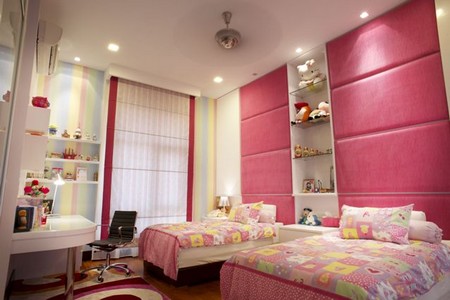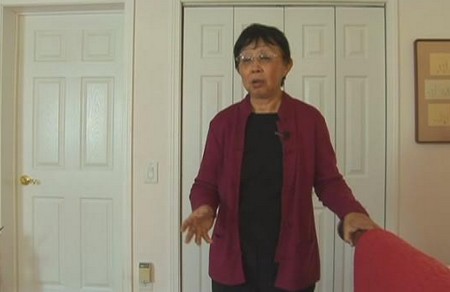On average, you spend one-third of your time in bed – and far longer when you are a child or ill – so the atmosphere in your bedroom should be peaceful, harmonious and, of course, safe.
Taking precautions
Fire
Never smoke in bed. It is just too dangerous a risk to take. Have a battery-operated smoke alarm installed inside, or just outside, your and your child’s bedroom; check that you can hear it wherever you are in your home.
Before going to sleep, turn off any bedside lamps, electric heaters and televisions. Never drape scarves over lamps to dim them or you could cause a fire. If you like having a light on in the night, buy a night-light or leave the corridor light on or replace your bedside light bulb with one of a weaker wattage.

Medicines
Never take medicine in the dark, just in case you have picked up the wrong bottle or remembered the instructions incorrectly. Keep all medicines, including birth-control pills, hidden away if you have children.
Children’s bedrooms
Furniture and lamps
Check that your child cannot get locked in any wardrobes, closets or cupboards: all doors should be able to be opened from the inside.
Choose heavy, stable furniture which he cannot knock or pull over onto himself and do not let a child under five sleep on a top bunk in case he falls out. Replace all free-standing lamps with wall-mounted or ceiling lights which cannot be knocked over or cause a fire.
Materials
Make sure that all the paint used in your child’s room is lead-free and non-toxic, especially that on your baby’s cot. Why not buy a cot with a natural wood finish and simply polish it with beeswax? Natural fibre bedding, such as untreated cotton flannelette sheets and cellular cottton blankets, are best for you and your child. Wash them before using for the first time.
In bed
Do not give a child a pillow in bed until he asks for one; he might be smothered. If you need to raise his head because he has a cold, put one under the mattress. Never let a cat or dog sleep with a baby in case it lies on his face, and never leave a baby alone in bed with a propped-up bottle or potato crisps or nuts in case he chokes. In homes where you might not hear your baby scream, you should always have a baby alarm. There are several kinds available, one of the best being the sort that has a battery-powered intercom that you can carry with you from room to room.
Heaters
To make sure children do not burn their hands on central heating radiators, fit them with a thermostat so you can turn the temperature down. If you do not have central heating, use a convector heater in your child’s room. They are safe to use although, like other heaters, they should never be put below curtains or used for drying clothes on.

Other dangers
During the day keep safety plugs or night-lights in sockets so that your child cannot stick his fingers or anything else into the socket holes.
Place a safety gate outside your child’s bedroom before he can walk so that he is used to it being there. There is nothing more dangerous than a toddler climbing out of his cot and being able to fall down stairs or explore the house while you are still asleep.